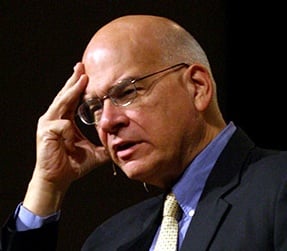 Robin Parry’s major focus, in his book The Evangelical Universalist
Robin Parry’s major focus, in his book The Evangelical Universalist , is a biblical case for (evangelical belief in) universalism (not the same as pluralism). He begins by looking at a major test case: Colossians (esp 1:15-20).
, is a biblical case for (evangelical belief in) universalism (not the same as pluralism). He begins by looking at a major test case: Colossians (esp 1:15-20).
Here’s the text and one has to stand back to see the grandeur of the redemptive designs here:
1:15 He is the image of the invisible God, the firstborn over all creation,
1:16 for all things in heaven and on earth were created by him – all things, whether visible or invisible, whether thrones or dominions, whether principalities or powers – all things were created through him and for him.
1:17 He himself is before all things and all things are held together in him.
1:18 He is the head of the body, the church, as well as the beginning, the firstborn from among the dead, so that he himself may become first in all things.
1:19 For God was pleased to have all his fullness dwell in the Son
1:20 and through him to reconcile all things to himself by making peace through the blood of his cross – through him, whether things on earth or things in heaven.
It would be easy to extend this for lines and lines but we can’t. A few observations:
1. Christ created “all things” and the “all things” that are also sustained by him.
2. He is preeminent over all.
3. He “reconciled” the same “all things” through his death and resurrection.
Therefore, #3 teaches redemptive universalism in Christ.
Robin Parry (aka, Gregory Macdonald) then examines how some have attempted to explain these clear lines of thinking.
1. Some see a restoration of the created order, but that involves some saved and some damned.
2. Some see this as God’s desire but not necessarily the actuality. It is God’s intent (David Powys).
The next two focus on the potentiality of the reconciliation for all:
3. Some see the reconciliation of #3 to be conditioned by faith (Howard Marshall).
4. Some see the reconciliation of #3 only for those who are “in Christ” (NT Wright).
Parry’s counter has to do with the permanence of the defeat of the powers and the finality of not being “in Christ” in one’s life now. His emphasis is the universal macroscopic nature of salvation in this text. The Church is the harbinger of things to come.
 Robin Parry’s major focus, in his book The Evangelical Universalist
Robin Parry’s major focus, in his book The Evangelical Universalist , is a biblical case for (evangelical belief in) universalism (not the same as pluralism). He begins by looking at a major test case: Colossians (esp 1:15-20).

